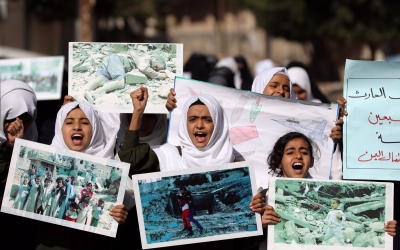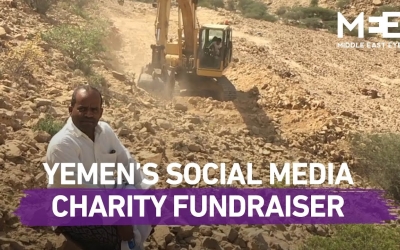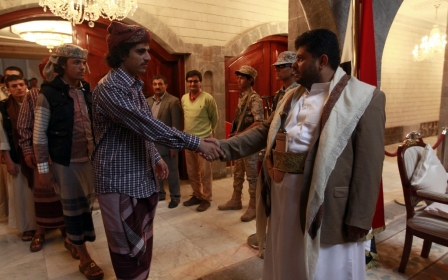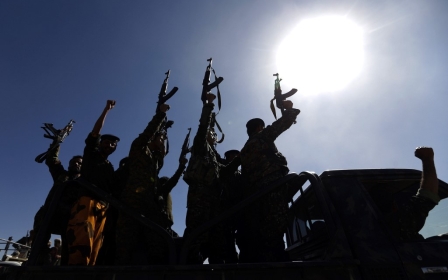Saudi-Houthi talks raise hopes and sideline Yemen's government
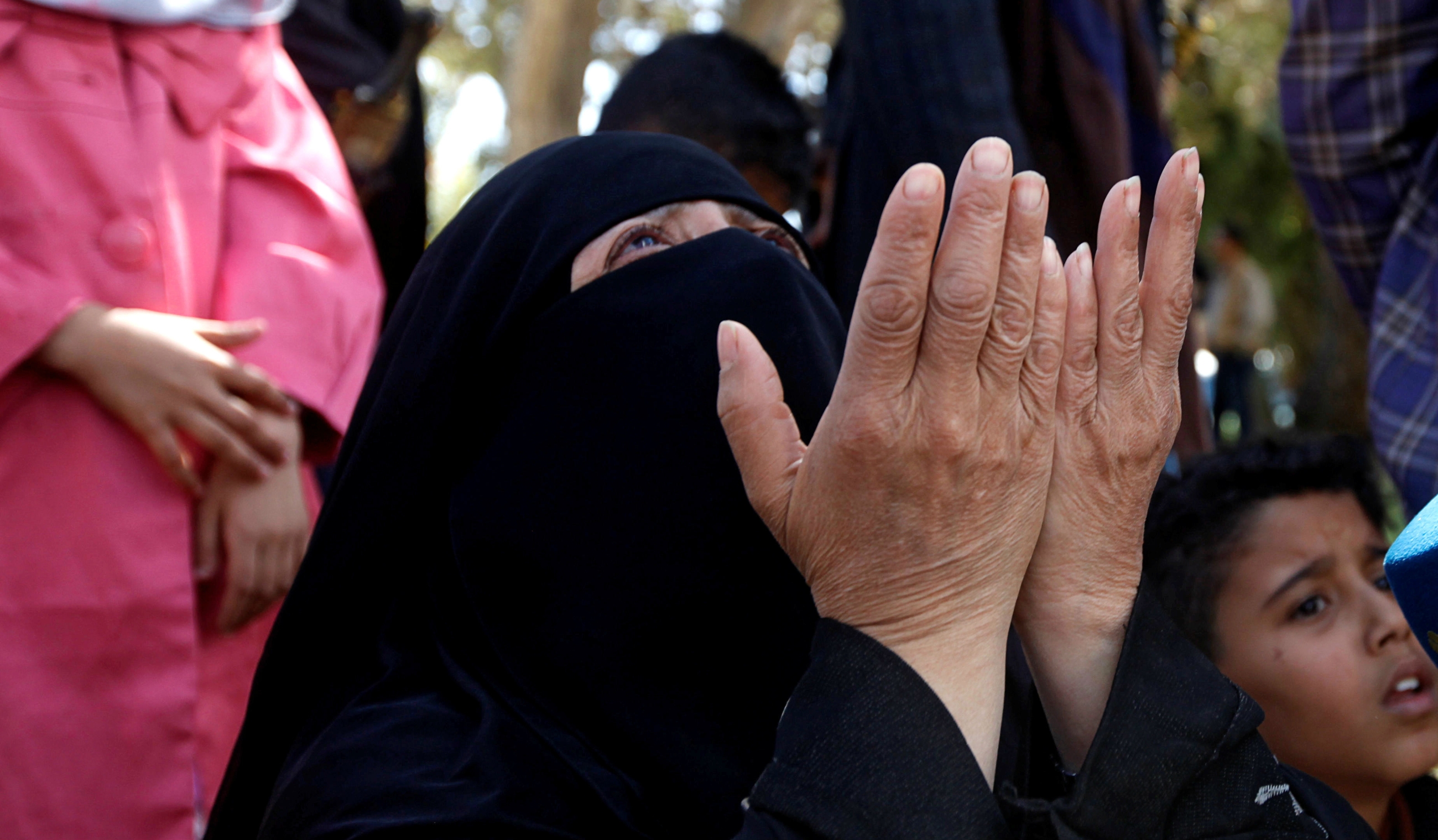
It has been a year since Yemen's Saudi-backed government and the Iran-aligned Houthis signed the UN-brokered Stockholm agreement, raising hopes that the bitter Yemeni war can be put to an end.
Yet those hopes faded quickly, as both sides accused each other of failing to implement the pact.
Though the United Nations-led scheme has apparently foundered, separate talks between the Houthis and Saudi Arabia have Yemenis wondering whether some sort of peace may in fact be on the table.
The absence of the Yemeni government in this equation, however, has many asking if the talks will bring the broader war to a close, or simply shield Riyadh from the effects of the conflict it is embroiled in.
Over the past two months, Saudi Arabia has reportedly held secret talks with the Houthis, followed by the release of hundreds of prisoners from both sides.
Riyadh has admitted having an “open channel” with the Yemeni movement to negotiate an end to the conflict, while the Associated Press reported earlier in November that Saudi Arabia and the Houthis have been holding “indirect, behind-the scenes talks”, mediated by Oman, which borders both countries.
The talks reportedly began in September after a Houthi attack on the world’s largest crude oil facility in Saudi Arabia, which temporarily hit nearly six percent of daily global production.
The Houthis reportedly offered to stop launching attacks on Saudi targets if the Saudi-led coalition fighting the Yemeni rebels ended its air strikes.
They later unilaterally released hundreds of prisoners, while the Saudis repatriated 128 Houthis on Thursday.
Meanwhile, Houthi attacks on the kingdom have been noticeably absent.
'Not part of Stockholm agreement'
Since 2015, Yemen has suffered under a deadly war waged between the Iran-aligned Houthis and a western-backed, Saudi-led coalition that intervened with the declared aim of reinstating the government of Yemeni President Abd Rabbu Mansour Hadi.
Another conflict has raged in the south between nominal allies, with UAE-backed separatists fighting against Saudi-backed pro-Hadi forces to gain control of swathes of southern Yemen.
Both the Houthis and Hadi government say the communication between Saudi Arabia and the Houthis is aimed at ending the latter’s attacks on the kingdom.
A Houthi source in Sanaa told Middle East Eye that the current talks are not part of the Stockholm agreement.
'Saudi Arabia is pursuing a truce to protect its land and its people'
- Houthi source
“The Stockholm agreement was between the Houthis and Hadi’s government, but now the negotiations are between the Houthis and Saudi Arabia,” he said, on condition of anonymity.
The coalition said on Tuesday that it had released 200 Houthi prisoners to support peace efforts aimed at ending the war, but only 128 arrived in Sanaa on Thursday.
It also said in a statement carried on Saudi state media that it would ease restrictions on Yemeni airspace to allow flights out of the Houthi-held capital Sanaa, to transport people requiring medical treatment abroad.
“There have been talks between Saudi Arabia and AnsarAllah [the Houthis] in Oman over opening Sanaa airport and lifting the blockade on Yemen,” the Houthi source said.
“Hadi’s government, however, was not involved in the talks because Saudi Arabia looks out for its own interests and does not care about mercenaries.”
The source added that the Saudis resorted to this step after the detention of three of their brigades on the Saudi border in August, and the Houthi drone attacks on oil facilities in September.
“Saudi Arabia is pursuing a truce to protect its land and its people,” he said.
Yemeni government ‘not involved’
Yemen’s Deputy Prime Minister Abdulaziz Gubari said earlier this month that his government was not aware of the ongoing talks between the Houthis and Saudi Arabia.
He warned Saudi Arabia not to sign any agreement that would keep Sanaa and other provinces under the control of the Houthis.
'The battles calmed down on the Saudi borders but not on local fronts. The Houthis are the winners of the talks'
- Abdulghani Rageh, a pro-Hadi military leader
Abdulghani Rageh, a pro-Hadi military leader in Taiz, said battles are still ongoing on several fronts in the city and only the air strikes have stopped.
“During the last month, the Saudi-led air strikes stopped targeting the Houthis, while the Houthis are still targeting civilians in the city,” he told MEE.
“The battles calmed down on the Saudi borders but not on local fronts.”
Rageh said the talks between Saudi Arabia and the Houthis have sidelined the Hadi government.
“The Houthis are the winners of the talks,” he said.
“I hope that Hadi and the government reject any secret agreement signed between Saudi Arabia and the Houthis. Any agreement should go through the Yemeni government.”
Saudis ‘prioritise their land’
Mohammed Ali, a journalist and commentator from Taiz, said Saudi Arabia is not willing to allow Houthis to target its economy and territory.
“Saudi Arabia prioritises the safety of its citizens and economy over all other issues, and it is natural to see it holding talks with Houthis to protect its lands,” he told MEE.
“The Saudis succeeded in stopping the Houthi attacks and that was a big achievement for them.”
Ali said Saudi Arabia does not discuss any solution with the “weak” Yemeni government. It only deals with the Houthis, who have the capacity to threaten it.
“The Yemeni government and Hadi are only helpless followers of Saudi Arabia. This is the result of their silence during the last years.”
Ali believes Riyadh is doing its best for the security of Saudis, while the Yemeni government has not taken any steps to avert the suffering of Yemenis as a result of the war.
“Saudi Arabia is trying to find an exit from the trap it fell into, while the Yemeni government and high ranking officials live outside their country and none of them care about Yemenis,” he said.
“I hope to see Yemenis inside Yemen holding talks with the Houthis and reaching reconciliation internally. Solutions will come from within Yemen, not from another country.”
Middle East Eye delivers independent and unrivalled coverage and analysis of the Middle East, North Africa and beyond. To learn more about republishing this content and the associated fees, please fill out this form. More about MEE can be found here.


